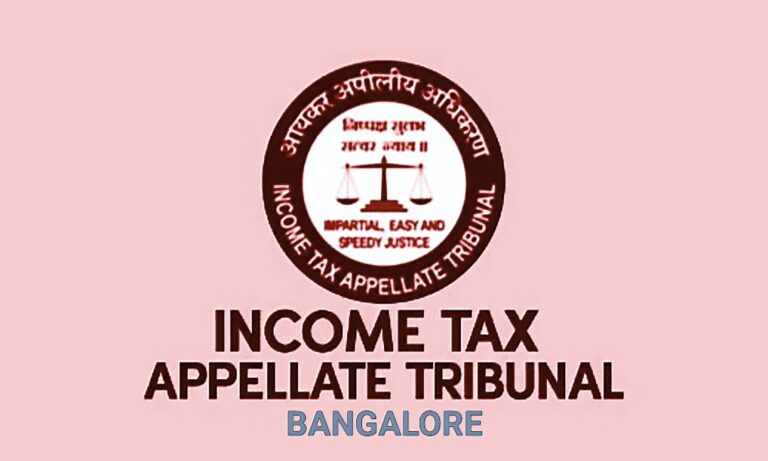In a significant ruling, the Income Tax Appellate Tribunal (ITAT), Bangalore has deleted a penalty of ₹20 lakh levied under Section 271D of the Income Tax Act on an assessee for receiving part of the property sale consideration in cash. The Tribunal held that the transaction was genuine, backed by reasonable cause, and therefore eligible for relief under Section 273B.
Case Background
The assessee, Shri Maheshwarappa Muniramu, a senior citizen aged 82 years and educated only up to 4th standard, along with his son, sold an immovable property on 30th June 2016 for ₹85,43,100. From his 50% share, he received ₹10,00,000 in cash, which he immediately deposited into his bank account and later transferred to a Capital Gains Account Scheme (CGAS).
- The Assessing Officer (AO) completed assessment u/s 143(3) on 06/02/2019, fully accepting the returned income and not recording any finding of violation of Section 269SS.
- However, after more than two years, the JCIT initiated penalty proceedings u/s 271D, alleging contravention of Section 269SS on receipt of cash consideration and imposed ₹20 lakh penalty.
- The assessee contended that being an aged and ailing person with limited education, he acted under a bona fide belief that receiving part of the sale consideration in cash was permissible. He stressed that the transaction was genuine, duly disclosed in the registered sale deed, with TDS deducted, and funds deposited into the bank and capital gains scheme.
Despite these arguments, the CIT(A)/NFAC upheld the penalty, holding that no reasonable cause was established.
ITAT’s Observations
On appeal, the Bangalore ITAT examined the facts and found merit in the assessee’s submissions.
- No satisfaction in assessment order – The AO had not recorded any satisfaction for initiation of penalty in the assessment proceedings.
- Genuine transaction – The cash receipt was duly disclosed in the sale deed, reflected in records, and deposited into the bank immediately.
- Age & bona fide belief – Considering that the assessee was 82 years old, illiterate, and unaware of the amendment to Section 269SS (effective 01/06/2015), his bona fide belief constituted reasonable cause.
- Judicial precedents – The Tribunal relied on rulings in Chamundi Granites (SC), Bhagwati Prasad Bajoria (Gauhati HC), and Dimple Yadav (Allahabad HC) which recognized that penalties under Section 271D are not automatic and reasonable cause must be considered.
Tribunal’s Verdict
Applying the relief under Section 273B, the ITAT held that:
- The assessee had a reasonable cause for accepting cash due to his age and lack of awareness.
- The transaction was genuine, transparent, and duly recorded.
- Hence, levy of penalty under Section 271D was unjustified.
Accordingly, the Tribunal deleted the penalty of ₹20,00,000, granting major relief to the assessee.
Key Takeaways
- Penalty u/s 271D is not automatic – It can be waived if the assessee demonstrates reasonable cause under Section 273B.
- Senior citizens or laypersons with bona fide belief may be exempted from harsh penal consequences in genuine transactions.
- Genuine and transparent property sale transactions, even if involving cash, may not attract penalty if supported by reasonable cause.
Conclusion
The ITAT Bangalore ruling in Maheshwarappa Muniramu vs. JCIT reiterates that tax authorities must adopt a fair and pragmatic approach while levying penalties under Section 271D. Where a transaction is genuine, properly disclosed, and supported by reasonable cause, relief under Section 273B must be extended to the taxpayer.
